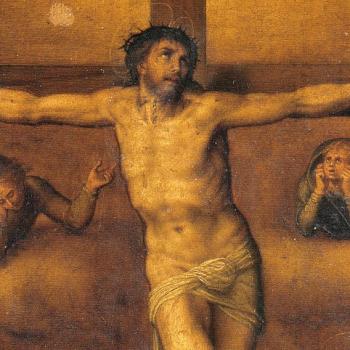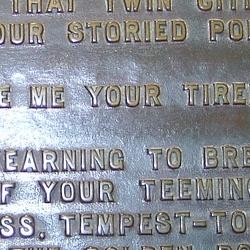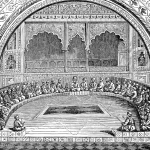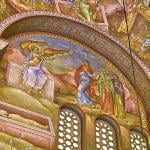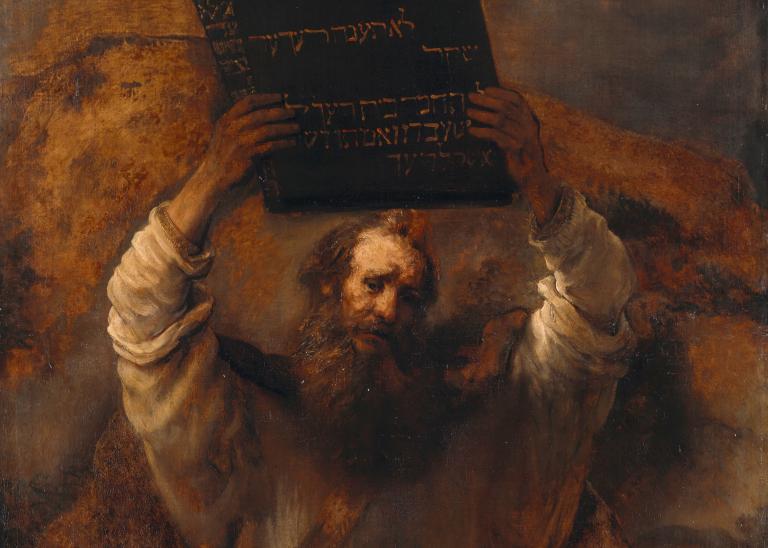
Rembrandt, “Moses Breaking the Tablets of the Law,” 1659
To begin, I should state how the Catholic Church defines heresy. You can find the definition in Canon 751 as well as the Catechism of the Catholic Church §2089. So here it is:
Heresy is the obstinate denial or obstinate doubt after the reception of baptism of some truth which is to be believed by divine and Catholic faith.
Not just “Catholic” faith, but “divine” faith too. Canon 750 tells us what sorts of things constitute “divine and Catholic faith.”
A person must believe with divine and Catholic faith all those things contained in the word of God, written or handed on, that is, in the one deposit of faith entrusted to the Church and at the same time proposed as divinely revealed either by the solemn magisterium of the Church or by its ordinary and universal magisterium.
These divine truths require “common adherence.” “All are bound,” the canon says, “to avoid any doctrines whatsoever contrary to them.”
So a heresy involves more than just a denial of what the Church proposes to be true. To speak heresy, one must also deny what God has revealed to be true.
But has the definition of marriage—one man and one woman—been revealed by God?
***
Canon lawyer Edward N. Peters argues that it has. In the wake of the SCOTUS decision in Obergefell v. Hodges, Dr. Peters wrote these words on his canon law blog.
If, as seems likely, Church teaching that marriage can exist only between a man and woman is taught not just infallibly (as a ‘secondary object’ of infallibility) but as being divinely revealed (making it a ‘primary object’ of infallibility), then, a Catholic’s obstinate denial of such a truth is canonically “heresy” (Canon 751) punishable by excommunication (Canon 1364 § 1), an automatic one at that—and is not just ‘opposition to Church teaching’ punishable by a ‘just penalty’.
The biblical basis for the argument is Matt. 19:4. The Pharisees asked Christ whether it were lawful for a man to divorce his wife “for every cause.” Christ in turn asked them, “Have ye not read, that he which made them at the beginning made them male and female?” In this verse, Christ is quoting Gen. 1:27.
In order to deny that Church teaching on this matter is a point of divine revelation, one would have to deny either or both of two things:
- that the words of Christ in Matt. 19:4 do not count as divine revelation;
- that Matt. 19:4 does not apply to the question of same-sex marriage.
I do not see how one could sustain either claim.
1. Since Christ is God, what he teaches is, by definition, divine revelation.
2. To claim that, though Christ is answering a question about divorce, he is not stating a principle that applies to any question about marriage, is to be arbitrary and unnecessarily limiting.
Every time the Church speaks about same-sex marriage—every time—it grounds its objection in Gen. 1:27 and Matt. 19:4.
Here, for example is how the Congregation for the Doctrine of the Faith discusses the point. The title of the document is “Considerations Regarding Proposals to Give Legal Recognition to Unions Between Homosexual Persons.” (And yes, that includes civil law too.)
The natural truth about marriage was confirmed by the Revelation contained in the biblical accounts of creation, an expression also of the original human wisdom, in which the voice of nature itself is heard.
This is a natural law argument, but not just a natural law argument. The CDF says that the truth is “confirmed by Revelation.” It is “in the biblical accounts.” Those who complain about the Church’s reliance on natural law will need to note this. The Church does not start with natural law and stop there.
There are three fundamental elements of the Creator’s plan for marriage, as narrated in the Book of Genesis.
In the first place, man, the image of God, was created “male and female” (Gen. 1:27). Men and women are equal as persons and complementary as male and female. Sexuality is something that pertains to the physical-biological realm and has also been raised to a new level—the personal level—where nature and spirit are united.
Marriage is instituted by the Creator as a form of life in which a communion of persons is realized involving the use of the sexual faculty. “That is why a man leaves his father and mother and clings to his wife and they become one flesh” (Gen. 2:24).
Third, God has willed to give the union of man and woman a special participation in his work of creation. Thus, he blessed the man and the woman with the words “Be fruitful and multiply” (Gen. 1:28). Therefore, in the Creator’s plan, sexual complementarity and fruitfulness belong to the very nature of marriage.
The CDF, like Christ, says that the creation of human beings “male and female” was part of God’s design for marriage, and it calls this a point of revelation. It is not just something the Church proposes; nor is it natural law alone. It is also a truth revealed by God.
That would put denial of this truth into the category of a heresy.







